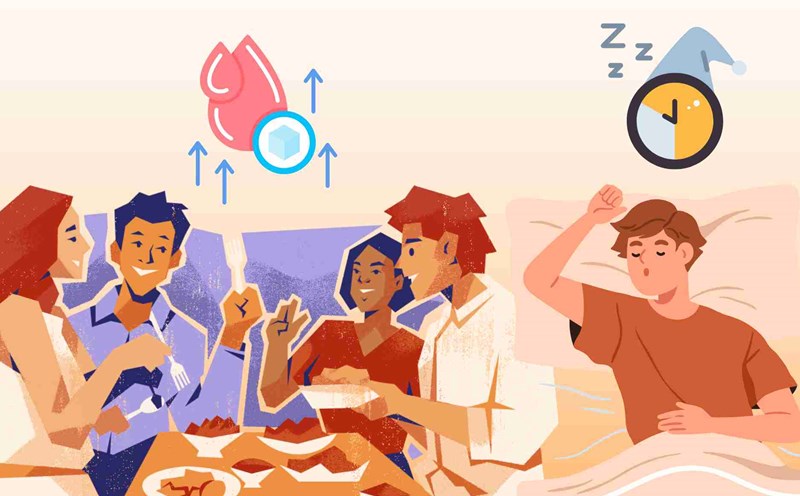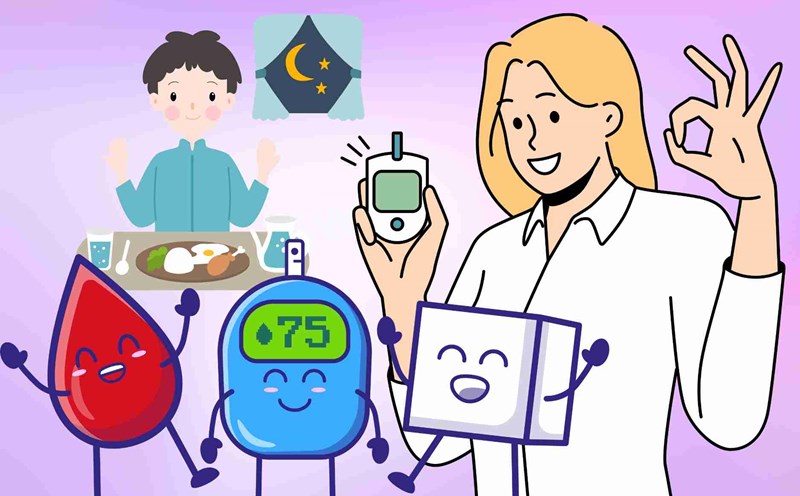Some common unhealthy habits include: drinking coffee too late in the day, drinking alcohol in the evening, maintaining unstable sleep-wake time... These behaviors gradually disrupt the natural sleep cycle, making night rest more difficult.
Here are some problems that the elderly often have with sleep.
Insomnia
According to the National Council on Aging (NCOA), insomnia is one of the most common sleep disorders in people aged 60 and over. This condition not only makes it difficult for patients to sleep but also makes it difficult to maintain sleep throughout the night.

Like adults, the elderly also need to get 7 - 9 hours of sleep a day. Insomnia may be a temporary burden, but it can also develop into a chronic problem, greatly affecting the quality of life of the elderly.
Sleep apnea
A common cause of poor sleep in the elderly is sleep apnea. This is a condition of repeated breathing interruptions during the night, causing the body to lack oxygen. If left untreated, sleep apnea can lead to many serious health problems such as stroke, memory loss, or high blood pressure.
The worrying thing is that many people suffer from sleep apnea without even knowing it. In particular, this condition can occur in both adults, children and especially pregnant women.
If you feel excessive sleepiness during the day, or a loved one complains that you snore loudly, shortness of breath or shortness of breath while sleeping, see your doctor for a check-up. Lifestyle changes, using ventilators such as CPAP, or surgical interventions are proven effective treatment options.
Sleep apnea
Older adults often have mobility disorders that affect sleep. One of them is restlessness syndrome (RLS), which creates discomfort that requires moving your legs (or arms), making it difficult for the patient to relax and fall asleep.
Another disease is periodic multiple axis motor disorder (PLMD), causing convulsions or light hand and foot twitching according to the cycle while sleeping.
Although there is no definitive treatment, relaxation methods and some medications can help reduce symptoms of sleep disturbances.
Alzheimer's disease and sleep disruption
Alzheimer's disease not only affects memory but can also disrupt the patient's sleep-wake cycle. Some people sleep too much, while others sleep very little. The situation of waking up many times, wandering around at night or screaming is also quite common in patients with this dementia.
Because sleeping pills can cause many side effects, non-medical measures are often a priority in treatment. These include improving sleep habits and space, limiting daytime sleep to help stabilize the body clock...











